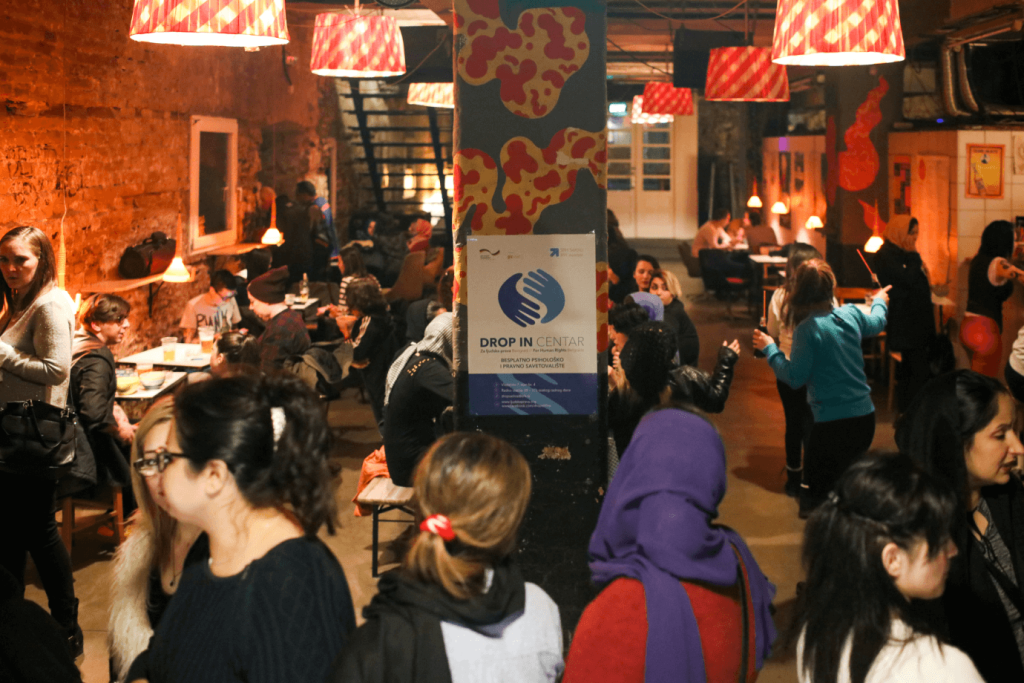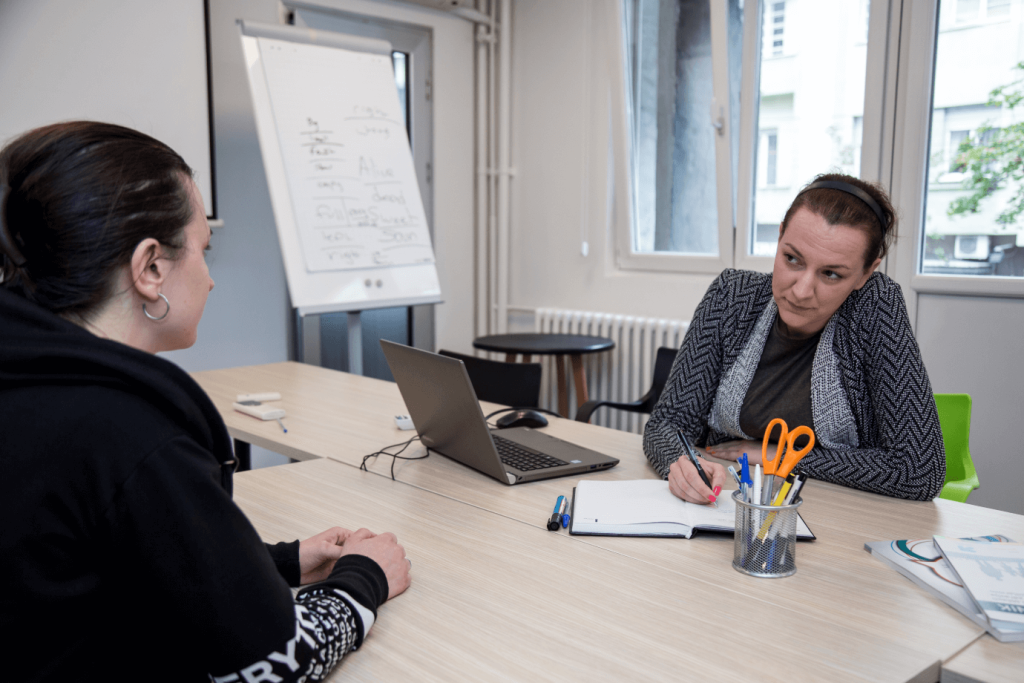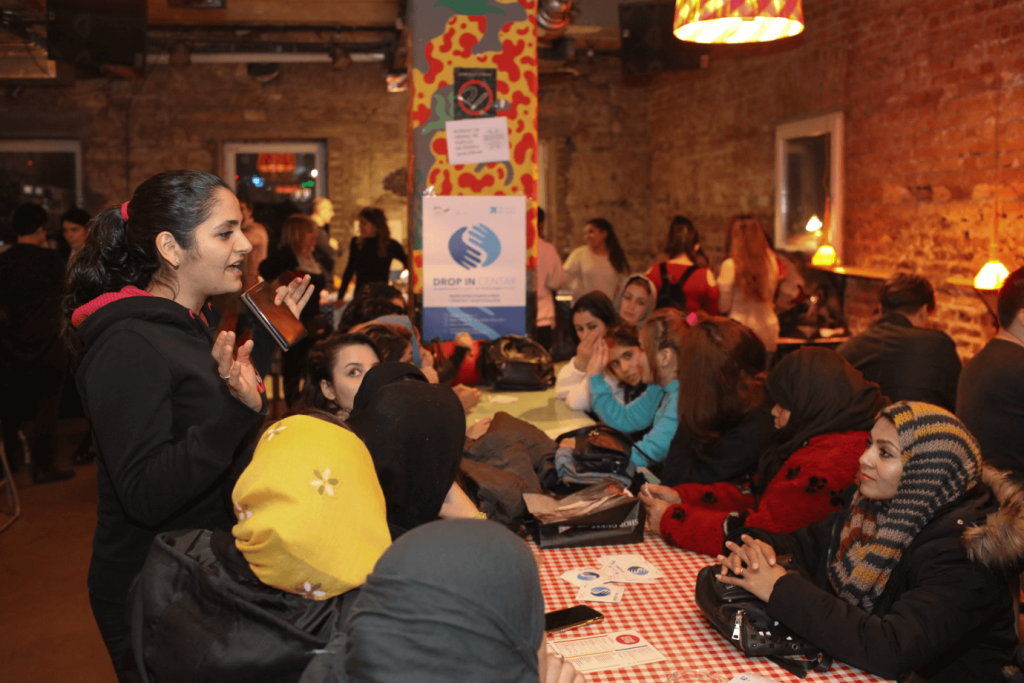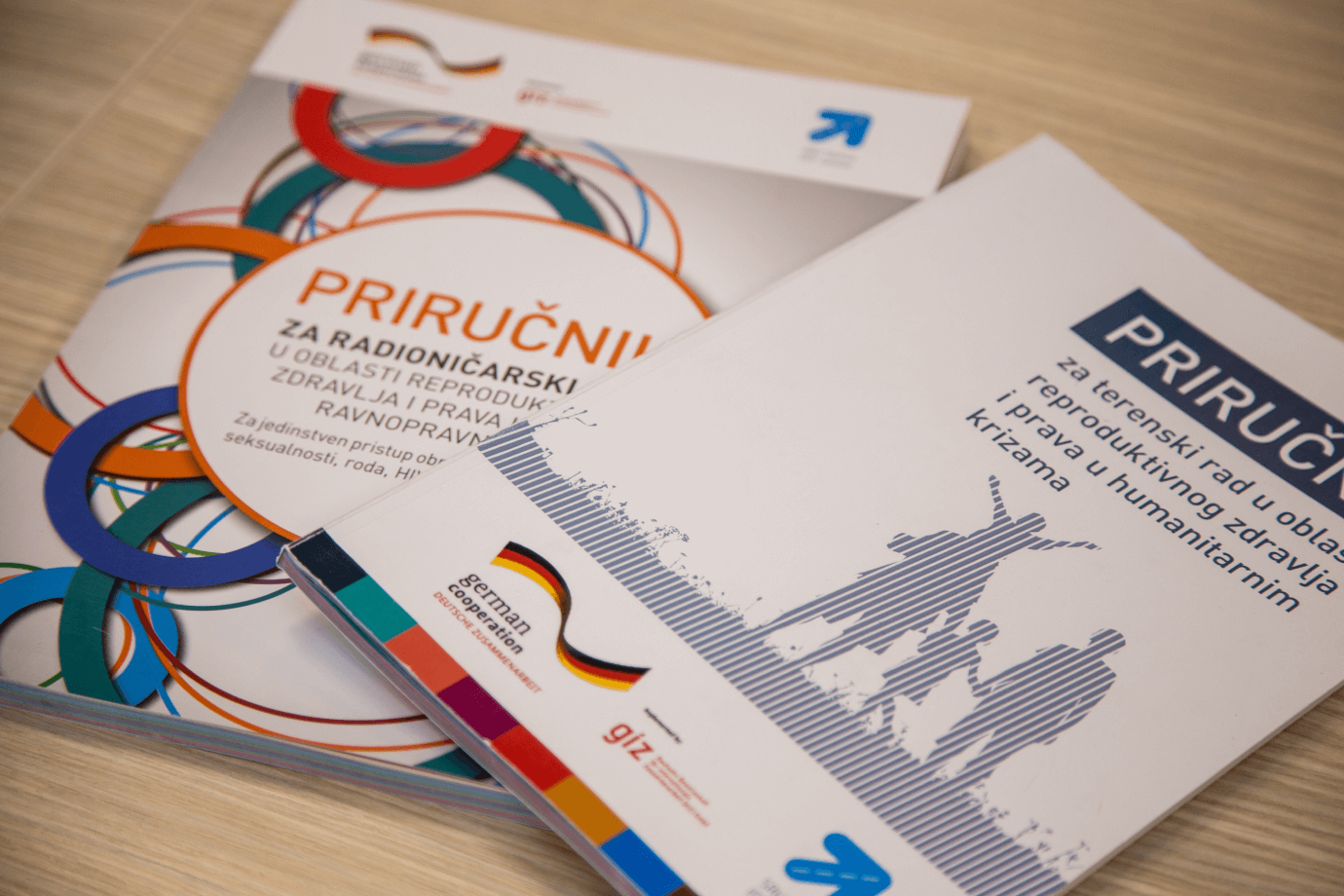Regional project „Social Rights for Vulnerable Groups“ SoRi of the German Development Cooperation implemented by GIZ, from its beginning aims on establishing different mechanisms in order to provide human rights, especially targeting members of vulnerable groups. In that sense, project has supported diverse actors on local, national and regional level. The Serbian Association for Reproductive Health – SRH Serbia which has, since 2002, been engaged in promoting human rights, establishing gender equality and preventing discrimination against vulnerable social groups is one of the implementation partners of SoRi project in different areas. The most important cooperation areas are for sure human rights and services which have been offered to users through Drop in centre.
SRH firstly established Drop in center in Nis in 2009 with the aim to offer their services to users in small cities. When portfolio of services became broder and targeted population enlarged in the same time, Drop in center opened its door to users in Belgrade in 2016. Launched with the aim of being a safe place for education and socialising, where everyone would feel welcome, the Centre brings together vulnerable social groups, such as migrants, returnees, refugees, Roma, LGBTIQ people, women, the youth and many others, providing them with different types of support, such as psychological, legal and peer counselling, medical assistance, lectures and workshops on the subject of human rights, anti-discrimination and the prevention of HIV and other sexually-transmitted diseases.

Copyright Marko Risović/SRH
“Last year we had 20-25 visitors a day – sometimes even entire families with children came in and we had time to meet all those people. We strive to provide our beneficiaries with precisely what they need, be it only a pleasant place to relax and socialise; they are not obliged to participate in our activities. Through honest communication with them, we make an effort to obtain information about their actual needs and, based on that, design additional activities and influence public policy,“ emphasised Dragana Stojanović, Executive Director at SRH Serbia.

Copyright Marko Risović/SRH
Drop-in Centre employees particularly feel proud of the psychological counselling services that, as they say, most beneficiaries assess. Currently, a psychologist works in the centre, providing support to beneficiaries through individual meetings and group workshops. The Drop-in Centre seeks to organise workshops in camps as well and, in doing so, reach a larger number of people. Beneficiaries also have at their disposal the Drop-in Online Facebook platform, and they may contact the psychological counselling unit for help both by phone and email.
“This is a very important aspect of our work, because there are many people who need help, but are unable to visit us. We encourage beneficiaries to turn to us whenever they need to and we teach them to recognise that mental health is just as important as physical health,“ emphasised Stojanovic. “We find it important that as many potential beneficiaries as possible hear about the Drop-in Centre and we also strive to inform them about our services both through flyers and Facebook. However, the best results so far have been achieved through the recommendations of our beneficiaries and partner organisations, which indicates to us that we are providing beneficiaries with just the type of support they need,“ she concluded.

Copyright GIZ SoRi
GIZ has recognised SRH Serbia’s efforts to become the missing link between vulnerable groups and system institutions and since 2015, through the SoRi project, it has supported the activities of the Drop-in Centre. “The Drop-in Centre aims to meet the needs of people facing difficulties in exercising their rights and whose needs are still not adequately met by the institutions of the system. In that sense, our common goal is to draw institutions’ attention to these people who would otherwise remain invisible and to find, in cooperation with the institutions, the best solutions for them,“ explained Stanislava Vidović, National Coordinator of the SoRi project.
During the project implementation the number of services has varied over the years, but also depending on actual circumstances (migration crisis). Total number of provided services from 2016 to 2019 was 7.555. More than a half users were women and even 77% Roma and refugees.

Copyright Marko Risović/SRH
“From the very beginning GIZ has understood very well our mode of operation which includes a large number of activities in the field and close communication with our beneficiaries and, because of that, along with the International Planned Parenthood Federation – IPPF, it is one of our most stable partners. GIZ is an organisation that truly empowers the NGO sector, not in the same way as donors, but as a true partner, and that is why we look forward to every opportunity to cooperate with GIZ,“ emphasised Dragana Stojanović.
It is important to say as a support to this claim, that Drop in center which was established as a good product of this cooperation will continue its work of providing services to users after termination of SoRi project.
The Regional Project on Social Rights for Vulnerable Groups, implemented by GIZ through German Development Cooperation, aims at improving the conditions needed to ensure equal social rights, including the right to non-discrimination, of vulnerable groups. Key stakeholders such as centers for social work, local administrations and non-governmental organizations are supported in selected municipalities. The project is implemented in five countries in the Western Balkans: Albania, Bosnia and Herzegovina, Kosovo*, North Macedonia and Serbia.
Contact person: Mr. Michael Samec
*This designation is without prejudice to positions on status, and is in line with UNSC 1244 and the ICJ Opinion on the Kosovo Declaration of Independence.


